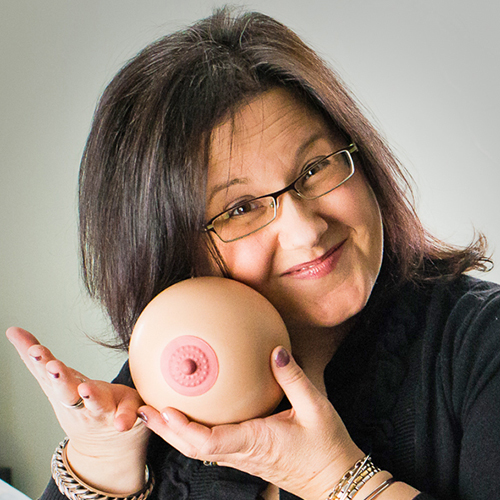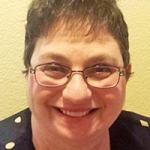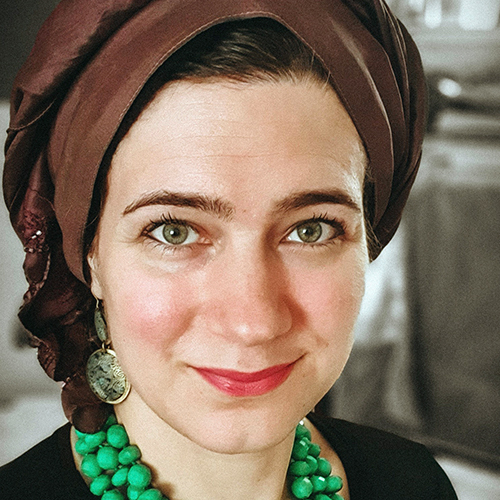 IBCLC Detailed Content Outline: Clinical Skills Focused CERPs - Section VII
IBCLC Detailed Content Outline: Clinical Skills Focused CERPs - Section VII
Access CERPs on Clinical Skills for the IBCLC Detailed Content Outline recertification requirements. Enjoy convenient on-demand viewing of the latest Clinical Skills focused IBCLC CERPs at your own pace.
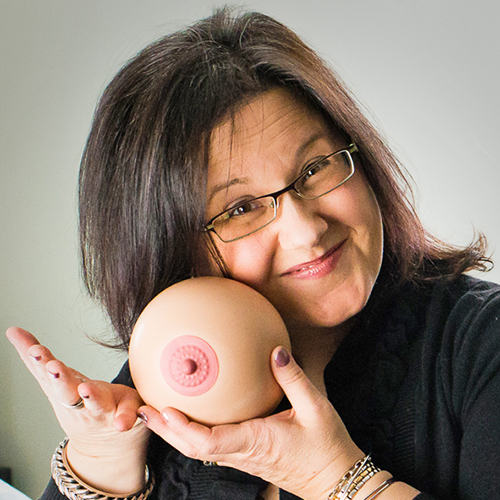
Pumping for Hospitalized Babies: 12 Keys to Supporting Families

Jeanette Mesite Frem, MHS, IBCLC, RLC, CCE is an experienced childbirth educator, IBCLC-lactation consultant and retired birth doula. She started her career working with families while serving as a Peace Corps Volunteer in Côte d'Ivoire, West Africa in the early 90s. She loved that work so much she went on to receive a public health masters degree from Johns Hopkins School of Public Health, focusing her studies on nutrition for maternal and child health. Her two children were breastfed for more than 2 years each and Jeanette has experience pumping at work for both children and has supported more than a thousand families with feeding and pumping over the last 20 years.
Jeanette provides prenatal childbirth and breastfeeding classes at her office in Northborough, Massachusetts, as well as providing virtual and office feeding consultations. She also enjoys leading workshops for perinatal health professionals and mentoring those who work with families. If you have questions, feel free to email [email protected].
Topic: Pumping for Hospitalized Babies: 12 Keys to Supporting Families - [View Abstract]
Perinatal professionals in hospitals have great influence over how much human milk a baby receives, as well as how encouraged parents feel related to pumping and initiating and maintaining their milk production and eventually meeting their infant feeding goals. When hospital staff help with pumping in the early hours, days, and weeks of a new and fragile baby’s life—especially when at breast, chest or body feeding isn’t possible—getting that professional support is likely to make a difference in the long-term health of that child as well as the health of their parent. Healthcare providers can facilitate milk collection and provision of it to babies and support parents with specific and updated guidance on pump choices, pump usage, flange fit and milk storage. Those who work in hospitals with families can make an important positive impact on long-term breastfeeding and human-milk feeding rates. This session will cover 12 simple ways (including the what, why, how, when and where of pumping) that healthcare providers can support parents who pump for their hospitalized baby.

View Details / Enroll
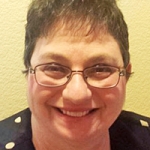

Debbie Albert, PhD, BSN, IBCLC, is a full time lactation consultant at UC Davis Med Center--working with all facets of their lactation service; including maternity floor, level IV NICU, pediatrics, PICU, and Employee Breastfeeding Support Program. She is also a prenatal instructor with their patient education program, nursing staff educator, and chairs the UCD Breastfeeding Task Force and the UCD Breastfeeding Support Program Committee. She received an Employee Excellence Award June, 2013 and June, 2015, and a Nursing Excellence Award in May, 2016. In addition, UC Davis programs have received IBCLC Lactation Care Awards and Sacramento Coalition and California State Coalition Breastfeeding Awards. Debbie has lactation experience in Florida, Texas, and California. She is Member of the LEAARC Board, a member of ILCA’s Equity Committee, and UCD Status of Women Committee. She is married to Dan Albert for 33 years, and has two sons, Josh (28), and David (24).
Raynauds is an illusive condition that tends to be confused with other conditions, misdiagnosed, and consequently rarely treated--causing the breastfeeding dyad to suffer. This program provides a review of the symptoms, medical and lactation resources, and clinical applications that facilitate most the effective treatment/comfort for the patient.

View Details / Enroll
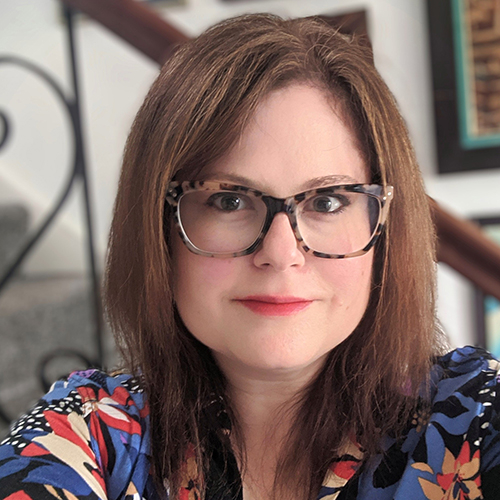
Reflections on a Breastfeeding Peer Counselor Program in Lebanon: Lessons Learned and Looking Forward

Tamara Drenttel Brand holds an MA in Near Eastern Studies from the University of Arizona and a Master’s in Public Health (MPH) from the American University of Beirut. She spent 10 years in the Middle East, where she worked as a public health practitioner, infant and maternal health consultant and an IBCLC. She has supported breastfeeding dyads from all over the world both in private practice and as a volunteer. In 2011, she founded and still actively facilitates “Mama 2 Mama Beirut Breastfeeding Support,” the largest breastfeeding peer support network in the Middle East (currently at 25k+ members). Additionally, she founded Galactablog, a professional group for lactation specialists and those aspiring-to-be (currently at 4.7k+ members) and has authored several articles for La Leche League’s monthly leader publications in both the Middle East and Ireland.
She is currently an international speaker on the topics dealing with breastfeeding in the Middle East, innovative lactation teaching strategies, working in resource-scarce settings, providing culturally sensitive lactation support, developing and implementing peer counselor training programs, mast cell disease and other related topics. Due to her own chronic health conditions, she has a special interest in educating others about mast cell disease and supporting those with chronic illnesses. She currently resides in a seaside village in Ireland with her family.
Topic: Contextualizing Breastfeeding in Lebanon - [View Abstract]
Topic: Lactation Education Outside the Box: Innovative Teaching Strategies to Engage Your Audience - [View Abstract]
Topic: Mast Cell Diseases and Lactation Care in the Post-Covid Era - [View Abstract]
Topic: Providing Culturally Sensitive Support for Breastfeeding Muslim Families - [View Abstract]
Topic: Reflections on a Breastfeeding Peer Counselor Program in Lebanon: Lessons Learned and Looking Forward - [View Abstract]
Breastfeeding rates are exceptionally low in Lebanon. Only 40% of mothers exclusively breastfed through the first month and 2.4% continued to exclusively breastfeed between 4 and 5 months. In 2012, I developed, implemented and evaluated a pilot Breastfeeding Peer Counselor (BPC) Training Program in Beirut, Lebanon. I chose this format since BPCs are adaptable to local contexts and studies have shown that that improve rates of breastfeeding initiation, duration, and exclusivity in a variety of settings and across diverse populations.
The program successfully trained 8 BPCs and led directly to the establishment of the largest mother-to-mother peer breastfeeding online support network in the Middle East (over 11,000 members to date). This presentation will provide participants with the knowledge to develop, adapt, and implement their own BPC Training programs suited to their local context. In addition, this presentation will reflect upon ethical considerations of such programs and will offer guidance on the process of program evaluation. This will allow participants to identify their own program’s strengths and weaknesses, which can improve the effectiveness of subsequent organizations.

View Details / Enroll
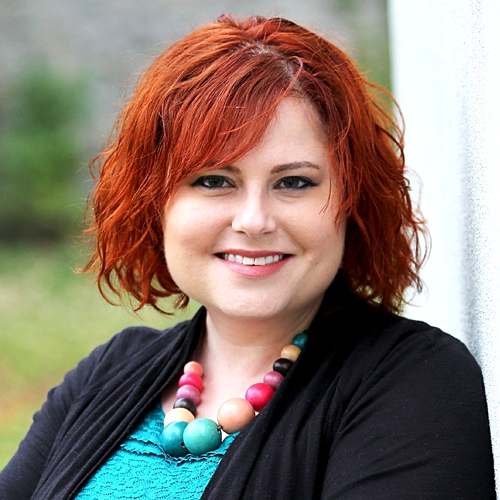
View Details / Enroll
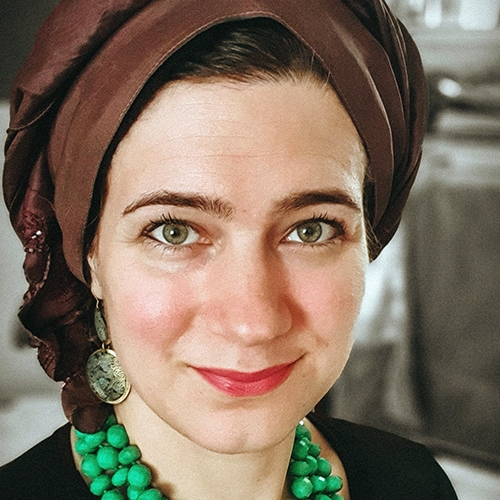
Research Ethics & Infant Feeding: How to Utilise the Four 'D's of a Brief Assessment

Zainab Yate is a Biomedical Ethicist, with a specialist interest in infant feeding. Zainab is Vice Chair and named qualitative lead on a paediatric flagged Research Ethics Committee Panel for the Health Research Authority (HRA) in the UK, reviewing research protocols for over a decade. Zainab's previous working background is in Public Health and Commissioning the National Health Service (NHS) in the UK. She had also been a volunteer breastfeeding peer supporter with the NHS for a number of years, is the owner-author of the resource site for mothers and healthcare practitioners on Breastfeeding / Nursing Aversion and Agitation and author of "When Breastfeeding Sucks".
Topic: Breastfeeding / Nursing Aversion and Agitation (BAA) in breastfeeding mothers - [View Abstract]
Topic: Navigating the Future: Bioethical Challenges in Anticipated Integration of AI in Lactation and Breastfeeding Services - [View Abstract]
Topic: Research Ethics & Infant Feeding: How to Utilise the Four 'D's of a Brief Assessment - [View Abstract]
Research ethics institutions protect the rights, safety, dignity, and well-being of research participants, and also have a duty to ensure ‘good’ research. Conducting poor research is unethical, and there are many studies in the field of breastfeeding and lactation that have been challenged when published, simply because their findings and results are, at best, incorrect. Proper definitions, project design and industry conflict of interest are important factors, and these can be critiqued and challenged at the ethical review stage.
Participants will learn how to use the method of the '4 Ds of a Brief Assessment' to scrutinise the research questions, definitions of words used, disclosures and even the research methodology to decide if a study will have both scientific and ethical merit in the field of breastfeeding and lactation. If you are a donor, an applicant, a manager or a researcher you need to be aware of the process of ethical review of research protocols, the possibility of specialist review, and also of how to sift through published studies that have questionable study designs, and the findings.
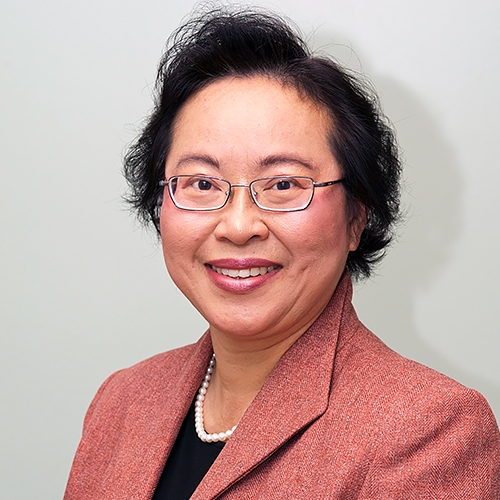
Research Review: What the Evidence Tells Us About Improving Breastfeeding Outcomes

Wilai Rojjanasrirat, PhD, RN, IBCLC, FILCA, FAAN is a Professor and Director of Research and Scholarship at Graceland University’s School of Nursing in Independence, Missouri. Her background is in midwifery and maternal and child health nursing.
She is an international board certified lactation consultant. She earned her Bachelor’s in Nursing and Midwifery from Thailand and Master’s and Doctorate and Post-Doctorate in Nursing from the University of Kansas. She teaches in graduate nursing program. Her research focuses on promoting and supporting breastfeeding, psychometric development, and educational outcome evaluation.
Using telehealth in providing lactation support, evaluation of the breastfeeding outcomes among late-preterm, near term, and term infants, and evaluation of the Business Case for Breastfeeding Program’s impact among employed breastfeeding mothers in Kansas are among some of the research projects.
Dr. Rojjanasrirat has multiple publications and recently contributed to a book chapter on Employment and Breastfeeding in Wambach & Spencer, Breastfeeding and Human Lactation, 6th edition in 2021. She served as a former president of the Pi Eta Chapter of the Nursing Honor Society, a board member of the KC Board of Directors of Kansas City, Kansas, and a former president of the Greater Kansas City Lactation Consultant Association for several years.
Topic: Understanding Lactation-Related Research - [View Abstract]
Despite the many benefits of breastfeeding to both mothers and infants, the majority of women are unable to reach the recommendations of the World Health Organization of exclusive breastfeeding for the first 6 months of life and continued breastfeeding for two years or longer. It's important for health care professionals to stay up to date with the latest research to always ensure that the care they're providing is in line with current best evidence.
This presentation will present the results of a research review on the effectiveness of interventions to improve breastfeeding outcomes. A database search including PubMed, Cochrane, and CINAH were conducted to identify systematic review and meta-analysis studies in English that focused on breastfeeding interventions that addressed breastfeeding outcomes in full-term healthy newborns from 2012 to 2022. Learn more about the which breastfeeding interventions are backed by strong evidence, quality issues in certain studies, and the implications for further research.
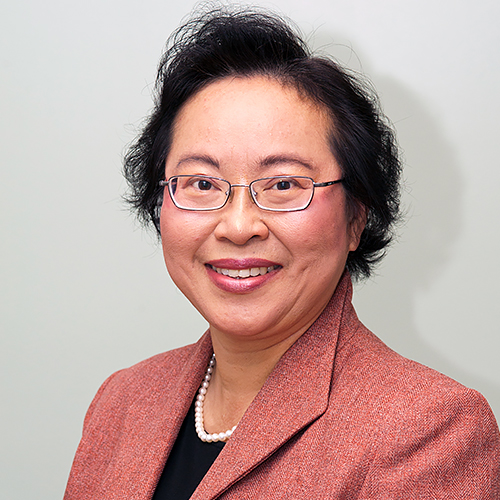
View Details / Enroll


Cecília Tomori is Associate Professor and Director of Global Public Health and Community Health at the Johns Hopkins School of Nursing with a joint appointment at the Johns Hopkins Bloomberg School of Public Health. She is a Hungarian American anthropologist and public health scholar whose work investigates the structural and sociocultural drivers that shape health, illness and health inequities. Dr. Tomori is an internationally recognized expert on breastfeeding, infant sleep and maternal child health.
During the COVID-19 pandemic, she has supported numerous organizations focused on maternal child health and health equity and advocated for equitable pandemic policies. She has authored three books on breastfeeding and reproduction, and published numerous articles on a range of public health and anthropological topics.
Topic: Resolving Cultural Conflicts in Nighttime Breastfeeding and Infant Sleep - [View Abstract]
Nighttime breastfeeding and proximate mother-infant sleep play a crucial role in sustaining lactation but present challenges for parents in settings where solitary infant sleep is the norm, and bedsharing is viewed as controversial and inherently dangerous. While separate parent-child sleep arrangements are a relatively recent cultural invention, they have become the dominant cultural norm, which also shapes medical infant sleep guidance in the U.S. and other similar settings. Recent breastfeeding promotion efforts, however, conflict with these cultural and medical imperatives for separate sleep. As more parents breastfeed, they find themselves falling asleep next to their babies. Some may fall asleep on unsafe surfaces in their attempt to avoid bedsharing, while others regularly bedshare in secret to avoid social stigma and other repercussions. To ensure both safety and wellbeing for infants and families, an integrated approach to nighttime breastfeeding and infant sleep will be recommended that incorporates evolutionary and cross-cultural perspectives.

View Details / Enroll

View Details / Enroll
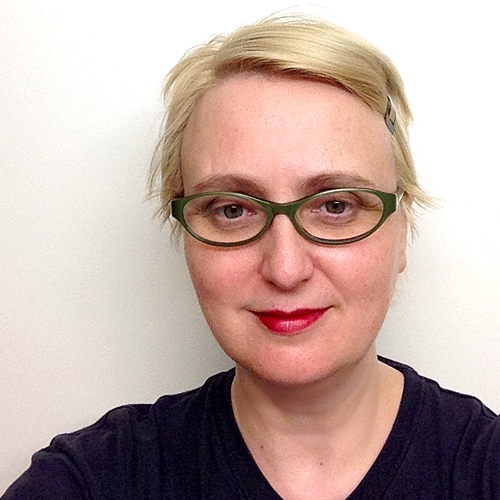
Rummaging in the Tool Bag: Examples of Approaches Borrowed from Other Disciplines, Applied in Lactation Support Practice

After working in the UK and France, lecturing and then in film and TV production, Annabelle became a breastfeeding support volunteer in France 10 years ago, after the birth of her first child. She then worked in lactation support in the UK NHS in London, whilst also volunteering for the National Childbirth Trust (NCT). Since 2016, she was the Infant Feeding Coordinator at Suffolk County Council Health and Children’s Centres, and had a small private practice. In her county council role, Annabelle took the Health and Children’s Centre staff through Stage 1 of UNICEF Baby Friendly Accreditation, and left the department well prepared for Stage 2. Whilst there, she oversaw an increase in breastfeeding rates, and contributed to Public Health initiatives to promote breastfeeding, including help to improve breastfeeding knowledge amongst doctors. Annabelle qualified as an IBCLC, lactation consultant in 2017. In October 2018, Annabelle took up her current post as lactation consultant for the 48th medical group at RAF/USAF Lakenheath.
Rummaging in the tool bag: how we can borrow from other disciplines, and enhance our care.
As infant feeding specialists, we should be open to discovering new tools that renew our practice. Historically, we’ve incorporated elements from elsewhere, e.g. Active Listening (Rogers and Farson, 1957), borrowed from psychology and conflict resolution.
Changes to the UK support landscape, mean that parents may not access traditional breastfeeding peer support, and instead see health staff. A diversity of background, can mean staff bring additional skills that then complement those acquired under the UNICEF Baby Friendly standard.
For specialist professionals, such as IBCLCs, some of these tools can also complement practice, and can be used to great effect.
This presentation proposes to look at some elements we can borrow that enhance our clinical practice. We will review aspects of Active Listening, and then move on to examine elements in the Signs of Safety model and Solihull Approach. These are just two examples of widely practiced approaches in the UK, and there are many other fields to be borrowed from.

View Details / Enroll
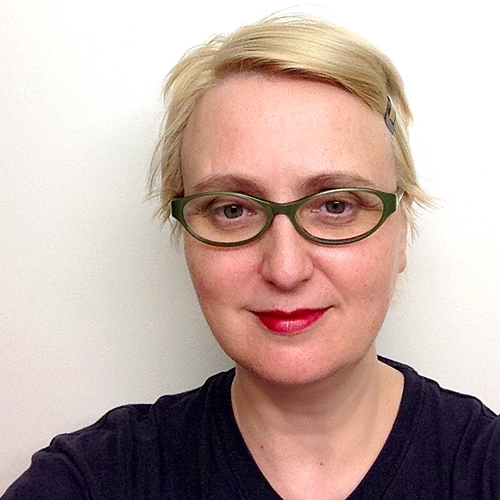
View Details / Enroll

Scaling Up Skills and Reliability of Breastfeeding Peer Counselors - 7 Years of Malaysian Experience

Nadrah Arfizah Arifin (MBBS, MPH, IBCLC) is a medical professional in public health and a lactation consultant who obtained her medical degree from University of Malaya, Kuala Lumpur in 2004. Her involvement in breastfeeding support and advocacy started in 2007 as a local breastfeeding supporter at her workplace. She further involved in community-based breastfeeding support voluntarily by joining the Malaysian Breastfeeding Peer Counselor Association (MBfPCA) in 2010. She became the first breastfeeding peer counsellor of MBfPCA who successfully upgraded to become the program trainer in 2011 to 2012, thus making the framework for Train of Trainer program in MBfPCA in effort to further grow the network. She is currently the President of MBfPCA and together with other Core Trainers, they plan for sustainability of breastfeeding support by peer counsellors for Malaysian community. While doing her Doctoral degree in Public Health (DrPH), she is also working on few projects in MBfPCA particularly in capacity building of breastfeeding peer counselors with the interest of maintaining its integrity, reliability and relevancy through monitoring and evaluation of community breastfeeding support program.
The roles of peer counselors (PC) in breastfeeding support is important to reach mothers and families in community as they would bridge the gaps within the warm chain of breastfeeding support. However, challenges has overcome in many forms, especially their reliability in providing breastfeeding support skills and knowledge. Malaysian Breastfeeding Peer Counselors (MBfPC) program has started in 2010 to enhance breastfeeding support for Malaysian community. Its training syllabus were adapted and modulated to be culturally acceptable. More than 500 PCs were trained.
The original syllabus was continuously being revised prior to each training since Malaysia is multicultural with great diversity, with few adaptations of new tools to enhance the understanding among the trainees whom majority are not health personnel. MBfPC Association (MBfPCA) is responsible to reliability queries by other parties, thus overseen the needs for MBfPC training reform. Three training levels were introduced in 2016; entrance, advanced, and train-of-trainers; to increase reliability of certified PC, even though the sustainability of the network is yet to be observed. The mechanisms used to select, train and certify the PCs had strengthened the roles and functional relevancy of MBfPCA existence in Malaysian scenario. This presentation will share the challenges and framework of capacity building among PCs to function as breastfeeding peer supporters in Malaysian context.

View Details / Enroll
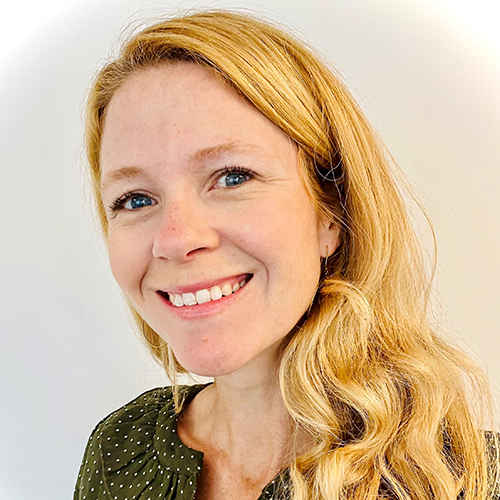
Seeing the Bigger Picture: Finding Clues in Our Breastfeeding Clients' Surroundings

Johanna Sargeant is an International Board Certified Lactation Consultant, teacher and writer based in Zurich, Switzerland. She is passionate about utilising her background in education, biological science, psychology and language to empower parents with empathetic support and evidence-based information through her private practice, Milk and Motherhood.
Originally from Australia, Johanna provides much-needed English-speaking support to many thousands of parents throughout Switzerland and across Europe, and has recently been writing new education modules for the European Society of Paediatric Research and the European Society of Neonatology. She has taught at the University of Zurich, has spoken as a panelist for the WHO's Baby Friendly Hospital Initiative congress in Geneva, has been an expert speaker and facilitator for Google, and has presented at a wide variety of international conferences. The complexities of her personal feeding experiences fuels her passion for providing knowledgeable, guilt-free infant feeding support globally.
Topic: Mastering Lactation Conversations: Creating Successful and Achievable Care Plans - [View Abstract]
Topic: Seeing the Bigger Picture: Finding Clues in Our Breastfeeding Clients' Surroundings - [View Abstract]
Topic: When Evidence and Empathy Aren't Enough: Changing Your Lactation Practice to Boost Client Success - [View Abstract]
Home visits play an integral role in the practice of many Lactation Consultants around the world. There are undoubtedly many benefits to meeting our clients in their own space, and one of these is that we can immediately garner a wealth of valuable information within a very short period of time. Along with learning a variety of quick and easy ways to stealthily, respectfully gather vital information about important feeding practicalities, this presentation will explore mental health, cultural humility and personal safety. We will explore the array of clues and red flags that may unknowingly surround you with regard to the clients' mental health and their overall safety. Additionally, as someone who works with clientele from over 75 different countries, Johanna shares what she has learned regarding the variations and commonalities between cultures when it comes to performing home visits, and which behaviours we can adopt to ensure continued humility and respect.

View Details / Enroll


Joy MacTavish, MA, IBCLC, RLC is an International Board Certified Lactation Consultant and certified Holistic Sleep Coach focusing on the intersections of infant feeding, sleep, and family well-being. Through her business, Sound Beginnings, she provides compassionate and evidence-based support to families in the greater Seattle area, and virtually everywhere else. She entered the perinatal field in 2007 as birth and postpartum doula, and childbirth and parenting educator. Joy holds a Master of Arts in Cultural Studies, graduate certificate in Gender, Women and Sexuality Studies, and two Bachelors degrees from the University of Washington. She enjoys combining her academic background, analytical skills, and passion for social justice into her personal and professional endeavors. Joy serves as an Advisory Committee Member and guest speaker for the GOLD Lactation Academy. When not working or learning, she can be found homeschooling, building LEGO with her children, or dreaming up her next big adventure.
Topic: Full-Term Breastfeeding/Chestfeeding: Benefits, Considerations, and Ways to Offer Support - [View Abstract]
Topic: Mindful Breastfeeding: How Lactation Professionals Can Support Calm and Connection - [View Abstract]
Topic: Sending Reports: What’s in it for IBCLCs? - [View Abstract]
Topic: Supporting Clients Facing Fertility Treatment - [View Abstract]
Topic: The Intersection Between Lactation, Sleep, and Family Well-Being - [View Abstract]
Topic: Weaning: Supporting Families Stopping Lactation and/or Ending Their Breastfeeding/Chestfeeding Relationship - [View Abstract]
Most lactation professionals love client interactions, but only send reports to health care providers out of a sense of duty. But writing and sending reports to our client’s health care providers can be more just an administrative task. Yes, it complies with IBLCE’s Code of Ethics to “Principle 4: Report accurately and completely to other members of the healthcare team” but it can also increase collaboration, improve client outcomes, and grow your practice.
This presentation seeks to reframe the process of writing and sending reports from a dreaded task to a clinical, ethical, and holistic way of supporting our clients while positively positioning ourselves as allied health professionals. Beyond the ethics (yes or no) and practicalities ("S.O.A.P." or not), a report to a health care provider is a source of communication about the consultation as well as marketing about your clinical skill, role in the client’s lactation experience, and lactation practice. With a combination of the why and how, this presentation outlines the ways in which reports to health care providers can be beneficial to the client, the health care provider, and the IBCLC, as well as devoting some time to specific strategies that lactation consultants can implement to streamline the process of sending reports so that we can get to the next client.

View Details / Enroll



